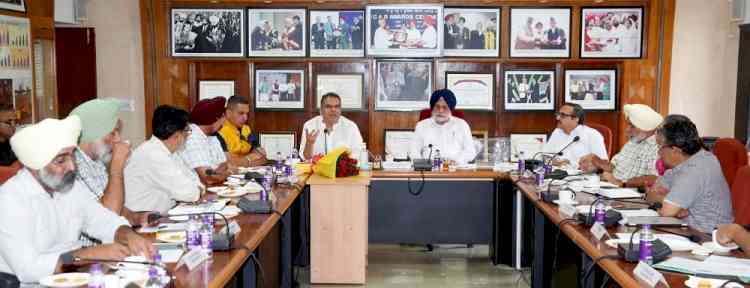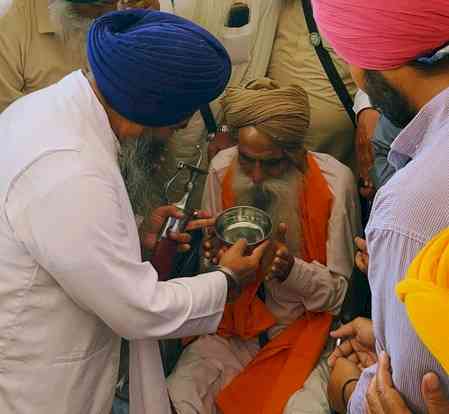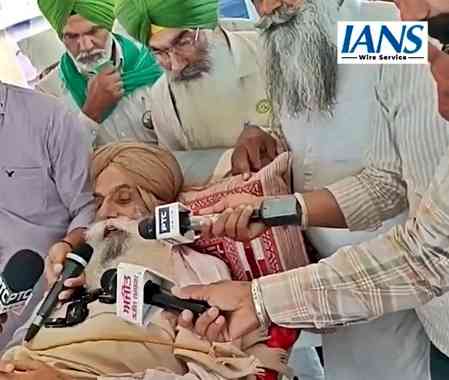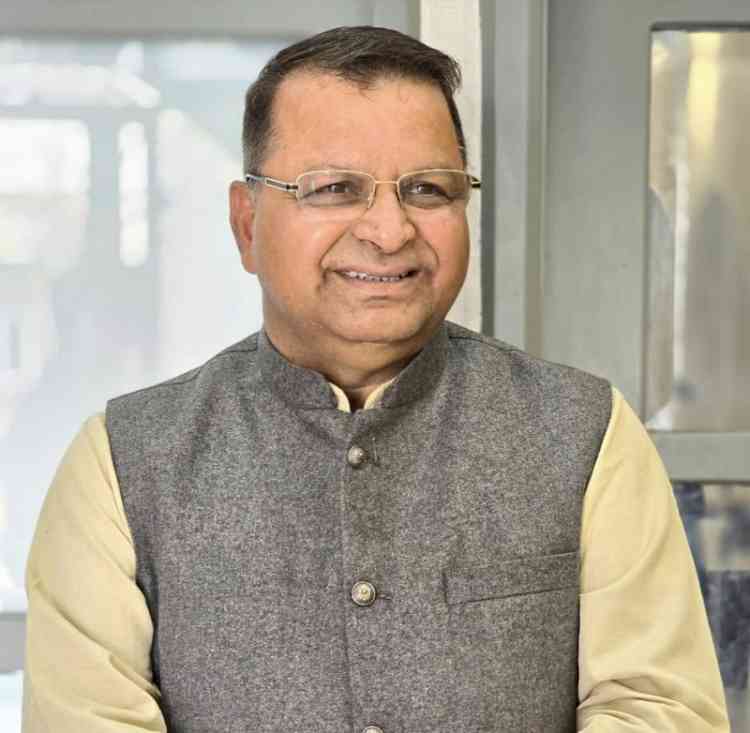Rajya Sabha MP interacts with PAU VC; Assures full support to agri-varsity
“The two-pronged strategy of popularizing Punjab Agricultural University’s enormous work profile and public-private partnership would ensure the university’s visibility and self-sustenance which are pertinent for survival in the modern world.” This was stated by Sanjeev Arora, Member of Parliament from Punjab in Rajya Sabha, during an interaction with the PAU Vice-Chancellor, Dr Satbir Singh Gosal and officers of the university.

Ludhiana, September 12, 2022: “The two-pronged strategy of popularizing Punjab Agricultural University’s enormous work profile and public-private partnership would ensure the university’s visibility and self-sustenance which are pertinent for survival in the modern world.” This was stated by Sanjeev Arora, Member of Parliament from Punjab in Rajya Sabha, during an interaction with the PAU Vice-Chancellor, Dr Satbir Singh Gosal and officers of the university.
Elaborating his point of view, Arora said the need is to monetize various technologies, products and assets that PAU has generated and that can happen only if the achievements of the university are rightly projected in the media. The industry sources need to be tapped for funding in research as the products must meet the industry’s requirements, which in turn would enhance the income of the farmers, he added.
There is a lot of scope in agro-processing and PAU’s capabilities and facilities should be publicized. Assuring every possible help, Arora suggested chalking out a proposal for one-time grant which can be taken up at an appropriate forum. He also promised assistance in upgrading the Rural Museum at PAU.
Earlier, Dr S.S. Gosal, apprised the Rajya Sabha MP about the current status of the university and the quantum of work that it has put in for the uplift of the farmers. Harbinger of Green Revolution, PAU has developed 914 varieties/hybrids of different crops out of which 225 have been released at the national level. Despite having only 1.53 percent geographical area, the Punjab state has been producing 22 percent of wheat, 11 percent of rice and 10 percent of cotton of the country. Research achievements in protection and processing technologies coupled with innovative technology transfer approaches form an exceptional work profile of the university, Dr Gosal averred.
Talking about the current difficult phase in Punjab agriculture, Dr Gosal enumerated problems like declining water table, deteriorating soil health and ground water quality, changing climate, crop residue management, diminishing farm size, increasing input costs, marketing constraints, etc. He opined that the focus should be on developing technologies that enhance production without adversely affecting the environment. The future is of climate-resilient technologies, germplasm enhancement, precision farming, micro-irrigation and fertigation, use of bio and solar energy, bio-fortification for nutritional security, etc., he emphasized. He also stressed the role of modern communication methods for giving impetus to transfer of technology. The Vice-Chancellor requested for one-time grant to harness the full potential for developing technologies as well as upkeep and revamping of university infrastructure.
An overview of PAU was presented by Dr Ajmer Singh Dhatt, Director of Research. Talking about the metamorphosis that PAU has gone through, he said that the university is pioneer in apiculture, cattle breeding, and leader in farm mechanization and has exemplary linkage with the farmers. Teaching, research and extension operate like the components of a well-oiled machine due to its integrative work system. Talking about the newly released wheat variety PBW826, he mentioned that it has been identified simultaneously for two major wheat growing zones of India which is very rare.
Dr Dhatt cited several research technologies in the domain of cropping systems, soil testing, kinnow cultivation, conservation agriculture such as zero tillage, leaf color chart, tensiometer, super seeder, smart seeder, agro-forestry systems, biofertilizers, pesticide residue analysis, micropropagation, quality seed and nursery production, etc. which add to the repertoire of achievements of the university. In addition, he informed that PAU has produced 7 Padam Bhushan, 11 Padam Shri, 2 World Food Prize winners and 44 Vice-Chancellors. Currently, the university students are having 16 Prime Minister Fellowships, he stated.
Harpreet Sandhu, advocate and nature artist who was also present on the occasion, appreciated Mr. Arora’s passion for art and culture and suggested that the Rural Museum of the university be brought on the tourism map of Punjab.
Dr Shammi Kapoor, Registrar, welcomed the august gathering while Dr R.I.S. Gill, Estate Officer, proposed the vote of thanks. The entire program was coordinated by Dr T.S. Riar, Additional Director of Communication.
The guests and officers of the university later visited Plant Breeding Crop Museum, Food Industry Centre and Biotechnology Centre. They were also shown field demonstrations.


 City Air News
City Air News 








